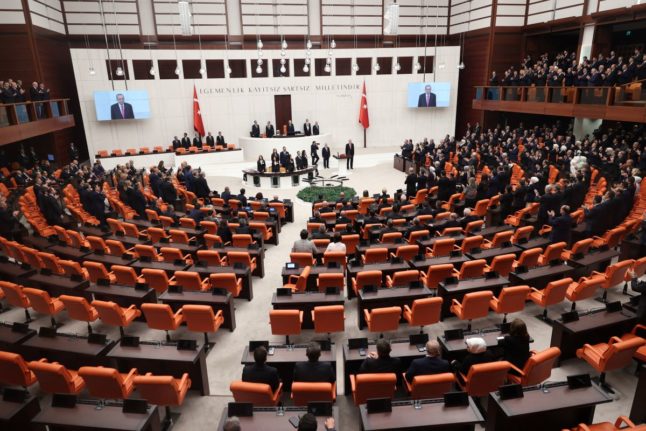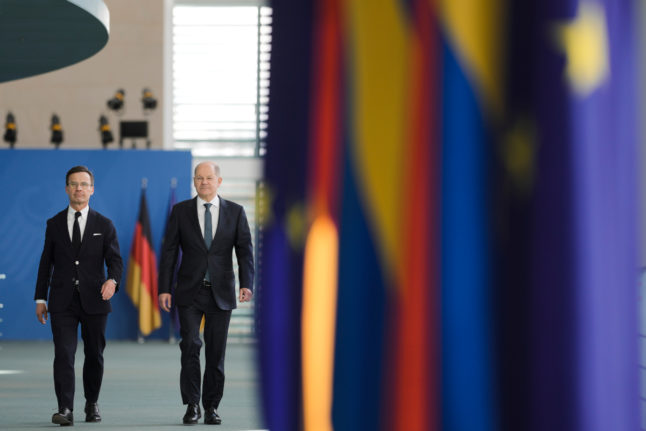Lawmakers were expected to overwhelmingly approve the Nordic nation’s bid to become the 32nd member of the alliance after it won the public backing of President Recep Tayyip Erdogan.The Turkish leader has promised to sign Sweden’s ratification document once it is approved by parliament — a technical step that could be completed this week.
Turkey’s green light would leave Hungary as the last holdout in an accession process that Sweden and Finland began in response to Russia’s invasion of Ukraine nearly two years ago. Ankara forced the Nordic countries to split up their applications after finding fault with Sweden and approving Finland after a few rounds of talks.
Finland’s membership last April doubled the length of Nato’s border with Russia and boosted the defences of three tiny Baltic nations that joined the bloc following the collapse of the former Soviet Union.
Sweden and Finland pursued a policy of military non-alignment during the Cold War era between the Soviet Union and the West. But the Ukraine war upturned geopolitical calculations and forced the two to seek the nuclear protection afforded by the world’s most powerful defence organisation.
Hungary has followed Turkey’s lead throughout the Nato accession process and was expected to approve Sweden’s without significant resistance. Hungarian Prime Minister Viktor Orban on Tuesday invited his Swedish counterpart to Budapest to discuss the bid.
But hints emerged on Tuesday of strains between Stockholm and Budapest. Swedish Foreign Minister Tobias Billstrom said he saw “no reason” to negotiate with Hungary about Stockholm’s Nato candidacy “at this point”.
Demand for US jets
Orban and Erdogan have maintained a good rapport with Russian President Vladimir Putin throughout the Ukraine war. Nato leaders had feared that the Kremlin was trying to use Orban and Erdogan to seed divisions in the West. The bloc’s commanders have cast the latest round of expansion as a show of Western resolve in the face of Russian aggression.
Erdogan’s objections to Sweden’s bid initially focused on Stockholm’s perceived acceptance of Kurdish groups that Ankara views as “terrorist”. Sweden responded by tightening its anti-terrorism legislation and tacking other security steps demanded by Erdogan.
But Erdogan then turned his gaze on unmet US pledges to deliver a batch of F-16 fighter jets that has met resistance in congress because of Turkey’s perceived backsliding on human rights and standoffs with fellow Nato member Greece.
Turkey also wants Canada to follow through on its promise to lift a ban on the sale of a key component used for making combat drones.
US Secretary of State Antony Blinken told Turkey over two visits in the past three months that it could help break congressional resistance to the F-16 sale by finally backing Sweden’s candidacy.
“We have not parsed words about how ready we are for Sweden to formally join the alliance,” deputy State Department spokesman Vedant Patel said after news emerged Monday that Turkey was on the verge of finally voting on Sweden’s candidacy.
“We have long felt that (Sweden) has met its commitment and we look forward to this process moving forward.”



 Please whitelist us to continue reading.
Please whitelist us to continue reading.
Member comments